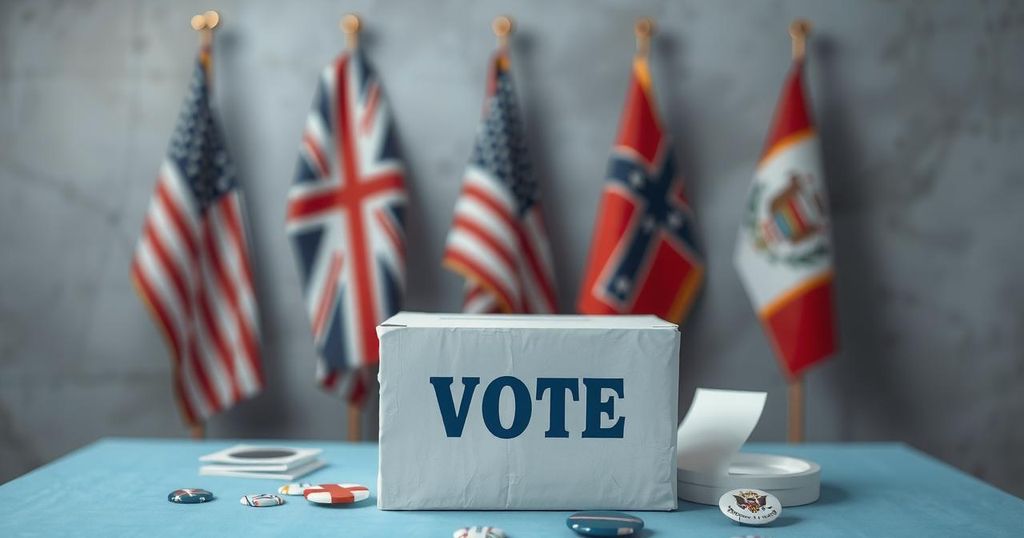Foreign Policy and Its Impact on the Canadian Election: An Analysis
The Canadian federal election on April 28 will explore the intertwining of foreign policy and domestic issues, particularly in relation to Donald Trump’s threats. While historians argue foreign policy matters, many political scientists contend it plays a minimal role in voter decisions. The leading parties lack clear distinctions in their strategies toward U.S. relations, raising questions about the influence of foreign policy on the electorate.
Canadians will once again participate in a federal election on April 28, facing competing visions for the nation’s future. As foreign policy intertwines with domestic issues more than ever, the focus of the election will likely center on how the next government manages relations with United States President Donald Trump and his threats to Canadian sovereignty.
Although Trump’s administration has destabilized the liberal democratic order that has benefited Canada, it is uncertain whether his threats, including a potential tariff war and ongoing global conflicts, will significantly influence Canadian voters’ preferences.
Traditionally, political scientists argue that foreign policy plays a minimal role in Canadian elections. However, historian Patrice Dutil posits that “at least half of Canada’s national elections featured substantive discussions of Canada’s place in the world.” This claim raises questions about the relevance of foreign policy in the current political landscape.
In the report titled “Foreign Policy and Canadian Elections: A Review,” it is suggested that while foreign policy is indeed a recognized issue, it competes with other factors—such as ideology and leadership perceptions—in shaping voters’ decisions. Local candidates and party affiliations can also drive voter behavior, leading some individuals to vote strategically.
According to political scientist Elizabeth Gidengil, for foreign policy to matter in elections, three conditions must be met: political parties should hold opposing stances, voters must recognize these differences, and public opinion should favor one position significantly—a rarity in Canadian foreign affairs, where parties typically align.
The front-runners in the current election, Liberal Mark Carney and Conservative Pierre Poilievre, lack distinct strategies toward handling Trump’s threats. Although both leaders assert that Canada will not succumb to American pressures, Poilievre claims he would manage relations more effectively, albeit without differing tactics. With Carney’s recent removal of the carbon tax, previously clear distinctions between the two parties have diminished significantly.
The interconnection of international and domestic issues complicates the election discourse, as Canada’s history reveals that foreign policy often influences electoral outcomes. Previous elections, such as those in 1891, 1911, and 1988, see free trade with the United States as a pivotal issue affecting Canadian independence.
Emotional decision-making often drives voter behavior, and while Trump captures the national focus, the major parties have not effectively outlined alternative policies. Voters can anticipate a discussion of party views on U.S. relations, foreign conflicts, and national security in the forthcoming weeks. Voter expectations for informed leadership on these matters are paramount.
Former Prime Minister Stephen Harper remarked in 2011 on the profound impact of foreign relations: “Since coming to office — in fact, since becoming prime minister [in 2006] — the thing that’s probably struck me the most… is how important foreign affairs/foreign relations is… it’s become almost everything.” Nevertheless, it remains unlikely that party stances on foreign policy will decisively influence election outcomes, as most Canadians may prioritize their instincts over specific policy proposals.
The upcoming Canadian federal election highlights the intricate relationship between foreign policy and domestic politics, particularly in the context of U.S.-Canada relations under President Trump. While historians assert the significance of foreign policy discussions in elections, traditional political science views it as a lesser concern. As political leaders outline their approaches, it remains uncertain whether these policies will resonate with Canadians at the polls, who often prioritize emotional connections over analytical assessments.
Original Source: theconversation.com




Post Comment